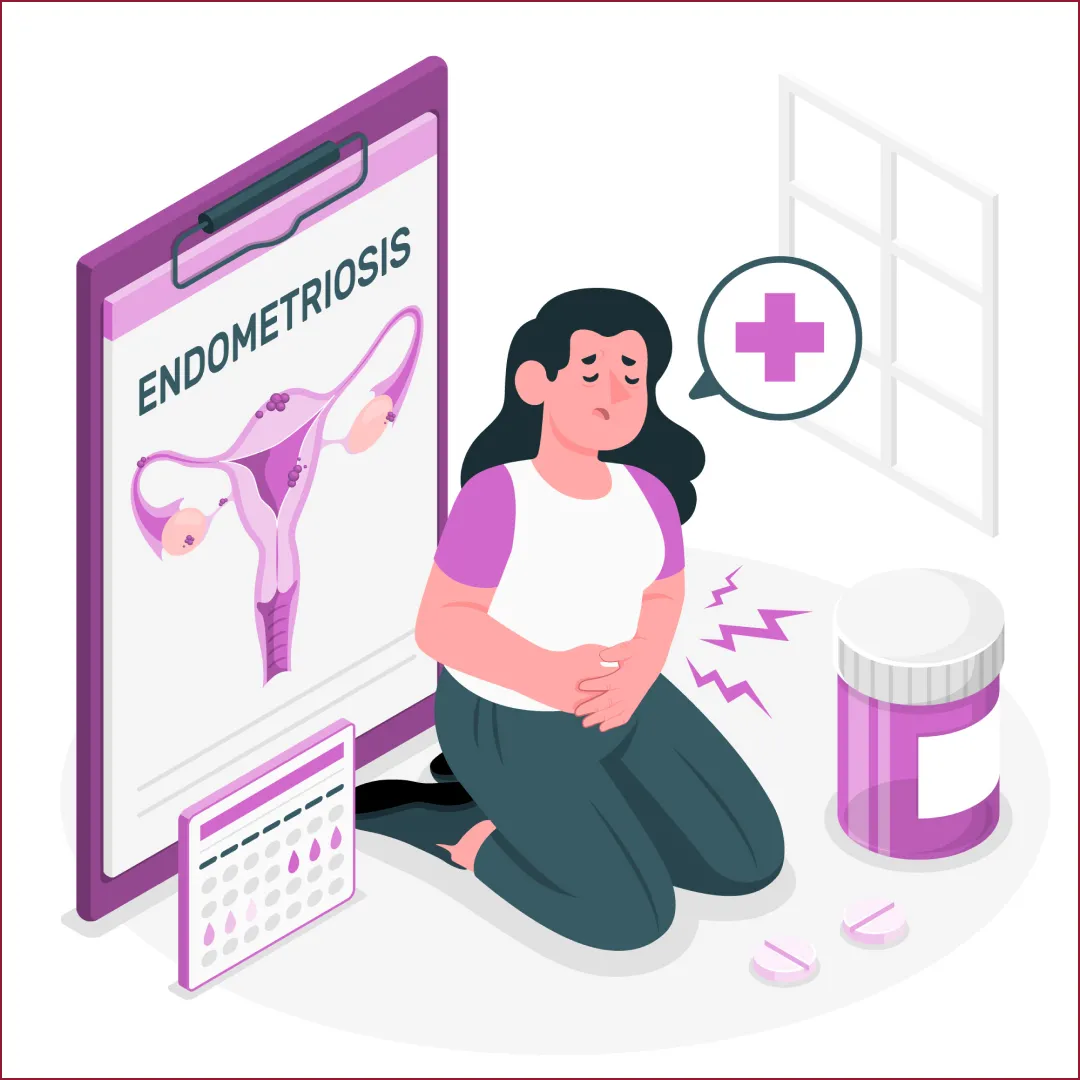Introduction
Endometriosis is a chronic and often painful condition that affects millions of women worldwide. Despite its prevalence, endometriosis remains underdiagnosed and misunderstood. This article aims to shed light on what endometriosis is, its symptoms, how it affects menstrual periods, and the available treatment options. By understanding endometriosis and its impact on menstrual health, we can better support those who live with this condition.
What is Endometriosis?
Endometriosis occurs when tissue similar to the lining of the uterus, known as the endometrium, starts to grow outside the uterus. These growths, called endometrial implants, can be found on the ovaries, fallopian tubes, outer surface of the uterus, and other organs within the pelvis. Unlike the normal endometrial tissue that sheds during menstruation, these implants have no way to exit the body. This can lead to inflammation, scarring, and adhesions, causing significant pain and other symptoms.
Symptoms of Endometriosis
The symptoms of endometriosis can vary widely from person to person. Common symptoms include:
- Pelvic Pain: Chronic pelvic pain is the most common symptom. This pain often correlates with the menstrual cycle but can also occur at other times.
- Painful Periods (Dysmenorrhea): Women with endometriosis often experience severe menstrual cramps that can be debilitating.
- Pain During Intercourse: Pain during or after sex is common due to the presence of endometrial tissue near reproductive organs.
- Pain with Bowel Movements or Urination: These symptoms can occur during menstruation if endometrial implants are present on the bladder or intestines.
- Excessive Bleeding: Heavy menstrual bleeding (menorrhagia) or bleeding between periods (menometrorrhagia) can be a sign of endometriosis.
- Infertility: Endometriosis is a leading cause of infertility, affecting the ability of the ovaries, fallopian tubes, and uterus to function properly.
How Endometriosis Affects Menstrual Periods
Endometriosis can have a profound impact on menstrual periods, often making them much more painful and difficult to manage. The presence of endometrial-like tissue outside the uterus means that during each menstrual cycle, these tissues also break down and bleed. However, without an exit route, this leads to internal bleeding, inflammation, and scar tissue formation.
Women with endometriosis often experience periods that are:
- Longer: Periods can last longer than the average 3-7 days.
- Heavier: Menstrual flow is typically heavier, leading to more significant blood loss.
- More Painful: The pain is not limited to menstrual cramps; it can extend to the lower back, abdomen, and even legs.
Diagnosis and Treatment
Diagnosing endometriosis can be challenging, as symptoms overlap with other conditions like irritable bowel syndrome (IBS) and pelvic inflammatory disease (PID). A definitive diagnosis often requires laparoscopic surgery, where a small camera is inserted into the pelvis to look for endometrial implants.
Treatment options for endometriosis include:
- Pain Management: Over-the-counter pain relievers like ibuprofen and prescription medications can help manage pain.
- Hormonal Therapy: Gonadotropin-releasing hormone (GnRH) agonists and other hormonal treatments can reduce or eliminate menstruation, thus alleviating symptoms.
- Surgery: For severe cases, laparoscopic surgery can remove endometrial tissue. In extreme cases, a hysterectomy (removal of the uterus) may be considered.
- Lifestyle Changes: Regular exercise, a healthy diet, and stress management techniques can help manage symptoms.
Living with Endometriosis
Living with endometriosis can be challenging, but with the right support and treatment, many women manage to lead fulfilling lives. It’s crucial to seek medical advice if you experience symptoms of endometriosis and to advocate for your health needs. Support groups and counseling can also provide emotional support and practical advice.
Saanchi’s Commitment to Women’s Health
Saanchi, a project under the Draupadi Devi Welfare Organisation (DDWO), is dedicated to empowering women and promoting menstrual health awareness. Through educational programs, health awareness campaigns, and support services, Saanchi helps women understand and manage their menstrual health, including conditions like endometriosis. Join us in our mission to enhance women’s health and well-being through education and support.


